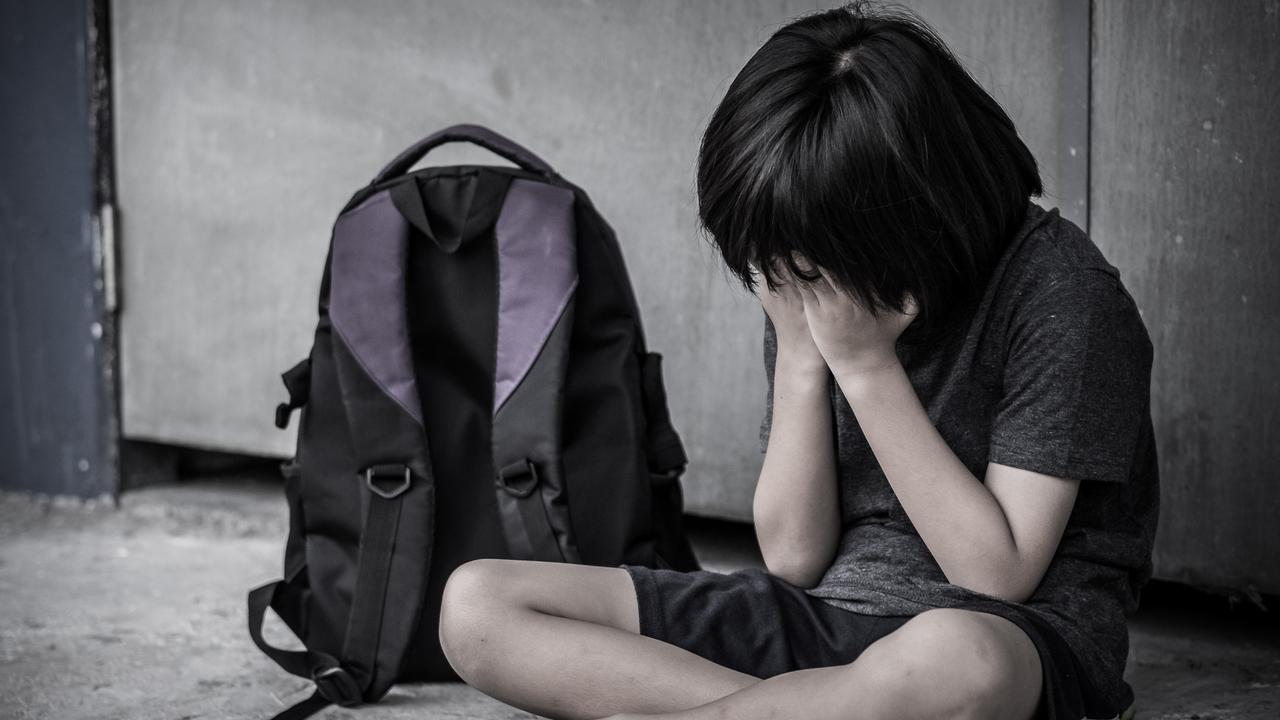Rise in number of struggling kids refusing to go to school
Behavioural experts have reported a spike in children refusing to go to school after lockdown but warn the real number of absences could be much higher.

Behavioural specialists have reported a spike in primary-aged children refusing to go to school after lockdown as experts probe ways to determine just how many students do not want to attend.
Researchers say the issue of school refusal is a “beast” to track because school absence records, which do not typically specify why a student is absent, are not detailed enough.
They say this lack of detail, combined with the distinction between public and private schools, means limited statistics exist on the phenomenon.
School refusal is when a child finds it extremely difficult to attend school, usually due to emotional distress or anxiety.
Director of the St Kilda based School Refusal Clinic and mental health social worker John Chellew said the number of children aged between five and seven years old needing care has doubled since the pandemic.
“We’re getting multiple requests a week. I’ve certainly noticed an increase in social anxiety among both boys and girls in primary and secondary school,” he said.

Mr Chellew said the problem threw daily life into disarray for a small percentage of families, but appointments were being booked out more than a month in advance since the lockdowns.
His largest patient base, students transitioning from primary school to high school, has also ballooned.
“They seem to be the ones that are struggling the most. They’ve gone from a small primary with one teacher into a secondary school with all sorts of academic and social complexities which they’re not used to, particularly on the back of being limited to homeschooling.”
Findings published by the International Journal of Environmental Research and Public Health show school refusal can be detrimental to academic performance, put kids at higher risk of psychiatric illnesses and employment troubles later in life.
Associate professor at Deakin University’s Centre for Social and Early Emotional Development Glenn Melvin said research has already begun exploring the number of children with intellectual disabilities remaining absent from school, but those findings did not provide a snapshot of the whole school population.
“We conducted one study looking at school refusal, and another on attendance problems in kids with intellectual disability, and we found that there were about five per cent who reported refusing school in the past month,” Prof Melvin said.
100 public schools have a state-funded mental health professional at school under the Mental Health in Primary Schools pilot program run by the government and the Murdoch Children’s Research Institute.

A Victorian government spokeswoman said while most students enjoyed returning to the classroom, the secondary school Navigator program designed to support disengaged and vulnerable students had been expanded.
“We were proud to invest $37m in the budget for a huge expansion of the Navigator program, supporting more young people at risk of disengaging from school, connecting them with an individual case worker who can link them to formal support services and create a path back into education,” she said.
A report published by Victoria’s Children and Young People Commissioner showed absenteeism was significantly higher in 2021 among some cohorts.
Monash University associate psychology professor Marie Yap said flow-on impacts of school refusal were a growing concern among researchers.
“A lot of professionals in the field are concerned around children being able to catch up on skills and opportunities for learning and development that have been lost as a consequence of the pandemic,” Prof Yap said.
Psychology professor at the University of Queensland and co-author of parenting program Fearless Triple P Dr Vanessa Cobham said kids taking longer to get ready in the morning and not wanting to talk about their school day were signs they did not want to attend.
Charmaine Hart’s 16-year-old son George has not attended school for the past six weeks due to crippling anxiety.
Ms Hart said the pair have been dealing with school refusal for five years, with George often going to school a couple of days a week before making up excuses when he does not want to attend at all.
“There’s so many variables and the pandemic didn’t help,” Ms Hart said.
“That’s concerning that he’s making up excuses for not going to school. Those issues are very easily resolved. But in his mind, they’re not.”




